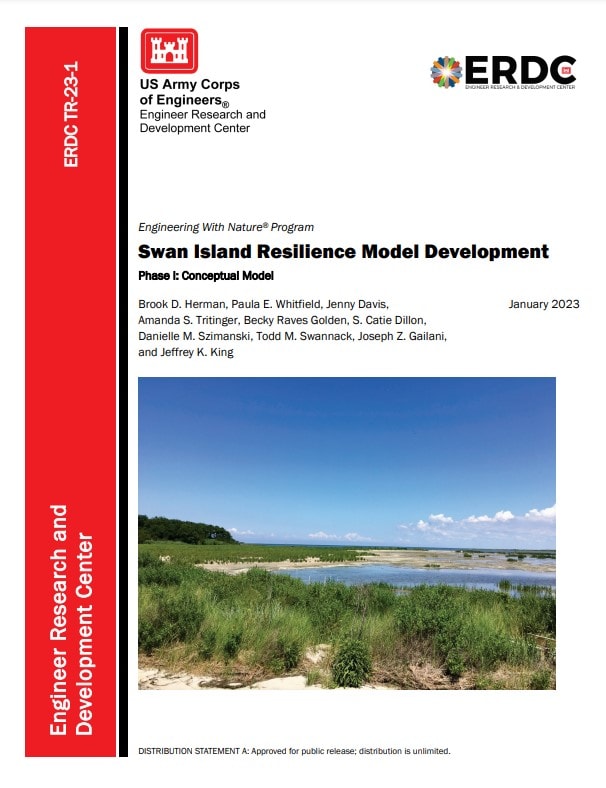This report documents the development of an integrated hydrodynamic and ecological model to test assumptions about island resilience. Swan Island, a 25-acre island in Chesapeake Bay, Maryland, was used as a case study. An interagency, interdisciplinary team of scientists and engineers came together in a series of workshops to develop a simplified resilience model to examine the ability of islands to reduce waves and erosion and the impacts to nearby habitats and shorelines. This report describes the model development process and the results from this first key step: model conceptualization. The final conceptual model identifies four main components: vegetative biomass, island elevation, waves/currents, and sediment supply. These components interact to form and support specific habitat types occurring on the island: coastal dunes, high marsh, low marsh, and submerged aquatic vegetation. The pre-and post-construction field data, coupled with hydrodynamic ecological models, will provide predictive capabilities of island resilience and evaluations of accrued benefits for future island creation and restoration projects. The process and methods described can be applied to island projects in a variety of regions and geographic scales.


